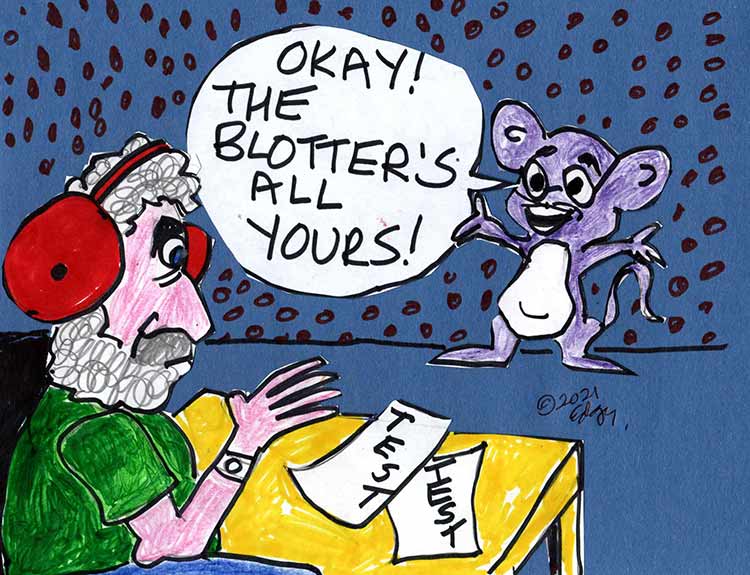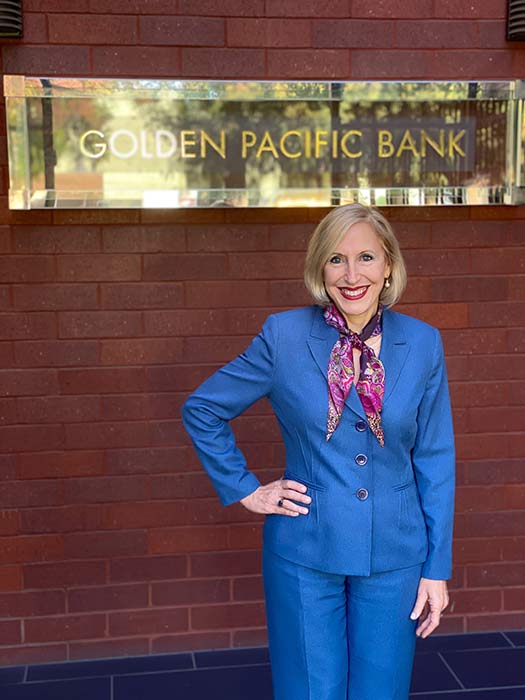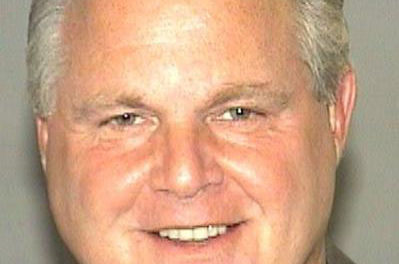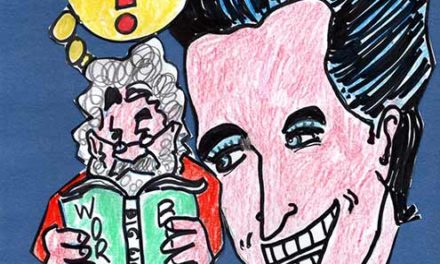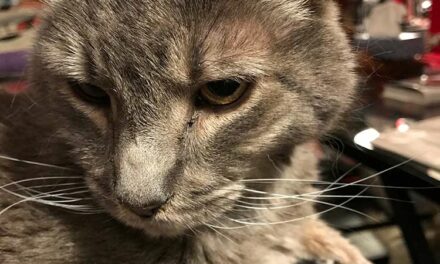Heard Immunity? We Take a Listening Tour
Testing for the indifference gene
By Ed Goldman
Do you remember when Hillary Clinton, running for President in 2016, embarked on what she called her “listening tour”? It was intended to portray her as having a connection with the country’s working class.
Sure enough, many of them voted for her—and in terms of sheer numbers, she won the election. But she didn’t listen closely enough, or pay enough attention to, strategically important states, as Trump’s campaign did. They snatched the all-important Electoral College votes, which put Trump in the White House for four horrible years.
Hearing Aide
So, what happened? In very simplistic terms, Clinton listened but didn’t hear. She heard what she wanted to hear and didn’t go out of her way to hear some unpleasant truths about how blue-collar and other laborers, traditional allies of the Democratic Party, felt disenfranchised.
Some years ago, I was accused of the opposite semantical problem: of hearing but not listening.
My spouse at the time insisted I get my hearing checked because apparently, I missed much of what she said. So, I dutifully trundled myself off to an audiology clinic, where I was fitted with state-of-the-art headphones—the kind you used to see TV pitchmen wearing as they sat in a recording studio and said, “Hey, would you like to be a radio announcer?” It was an ad for the Columbia School of Broadcasting, which an off-screen voice took pains to clarify was “not affiliated with the Columbia Broadcasting System,” which we know more familiarly as CBS, the network of Stephen Colbert, “60 Minutes” and, unfortunately, “God Friended Me.”
I was asked to respond each time I heard a tiny little electronic ping, which got fainter and fainter. I finally said I couldn’t hear anything anymore, which was when the audiologist came into the room, gently removed my headphones and gave me her official verdict.
“Mister Goldman, you could hear a mouse peeing on a blotter in an office a mile away,” she said. I laughed until she felt compelled to add, “You don’t have a hearing problem. You have a listening problem.”
Listening problems probably comprise a national pandemic as pervasive, though certainly not as fatal, as COVID-19. Its symptoms include hearing but not listening when reliable experts reveal hard-researched facts about climate change, vaccinations and the results of the 2020 Presidential election (spoiler alerts, respectively: It may be too late to reverse, they can save your and others’ lives, and Donald Trump made a decent showing but most definitely lost. It also should be noted this was the first and will be the last time I use the words “decent” and “Trump” in the same sentence).
We come to this proclivity for ignorance at a very early age, like the first time one of our little friends is saying something we don’t like—along the lines of, “You did, too, drop the ball” and our reaction is to put our hands over our ears and scream, “I can’t hear you, lalala!”
The serious side of this admittedly superficial gambol concerns the need for us to occasionally bring an extra set of ears to serious moments in our lives.
Each product purchased plants a tree in one of our nation's forests. Shop Arbor Day Foundation Now!
During the different times in my life I’ve been a sole caregiver or just a friend with a flexible schedule, I’ve often accompanied people to medical appointments—sometimes just to provide a ride, but more often than not, to bring an extra set of ears to the proceedings. And no matter how admirably dispassionate these patients could be about their infirmity, I found with few exceptions that they missed hearing something—and frequently, it was the “good news” part of the physician’s “good news/bad news” summary.
I think this might have made me seem somewhat Pollyanna-ish when , driving home from the exam or consultation I went on and on about that good news. But the people I escorted knew that I was a realist, less by nature than by unpleasant experience—resulting in their feeling a little better about what had just transpired.
When the news was purely bad, I tried to simply keep my mouth shut on the ride back. The patients had been given the score and both they and I had heard it. And I’ve learned in my 70 years with the Department of Earth that sometimes listening involves knowing when silence itself can be deafening.
Ed Goldman's column appears almost every Monday, Wednesday and Friday. A former daily columnist for the Sacramento Business Journal, as well as monthly columnist for Sacramento Magazine and Comstock’s Business Magazine, he’s the author of five books, two plays and one musical (so far).
Yes, Virginia
A Weekly Blog by Virginia Varela
President and CEO, Golden Pacific Bank
photo by Phoebe Verkouw
An investment in knowledge pays the best interest. – Benjamin Franklin
I had the marvelous opportunity of spending some time this July teaching about 100 second- and third-year graduate students at the Graduate School of Banking at Colorado (“GSBC”) for the University of Colorado in beautiful Boulder.
The Graduate School of Banking at Colorado is geared toward teaching community bankers. Per its website, GSBC “offers the next generation of community bank leaders the chance to learn valuable skills and make valuable connections with other industry leaders.”
I was amazed by the excitement and enthusiasm of the students. They were interactive, open, willing to learn by asking questions and providing comments that demonstrated a genuine desire for professional growth.
But what I found most amazing is how dedicated and proud they are of the community banking industry they have chosen and dedicated their work life to. What a joy it has been to have the opportunity to train so many wonderful people who care about community banking!
Here are comments from actual students (as taken from the GSBC website):
-“My GSBC experience was truly wonderful. The classes are well-structured and taught by knowledgeable instructors covering many of the issues community bankers are faced with today, and in preparing for future challenge.”
-“The students come from organizations all over the country and bring a unique diversity to the in-class discussions. There are numerous networking opportunities to meet and connect with peers, and I am thankful to have met so many other professionals and friends.”
-“My experience at GSBC was nothing short of outstanding. Beyond the beautiful scenery… my three years in the program afforded me a career opportunity of a lifetime. I learned so much, and cannot place a value on the connections, friendships and experiences gained as a result of attending the program. Going forward, I will forever be GSBC’s most vocal cheerleader and advocate!”
I am so proud of this teaching experience. I am honored and hope that in some small manner I have helped graduate students become better community bankers.
It was one of my better investments—of time and hope.
sponsored content



